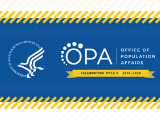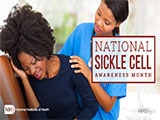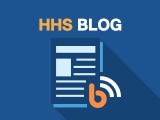Elder Abuse: A public health issue that affects all of us
Elder abuse is a critical social, health, and economic problem. Approximately 10 percent of adults age 60 and older have experienced physical abuse, psychological or verbal abuse, sexual abuse, neglect, or financial exploitation. Older Americans lose an estimated $2.9 billion a year as a result of financial exploitation. In the most heartbreaking cases, it means the complete loss of savings earned through decades of hard work.
Elder abuse also is a critical public health issue. Survivors report higher rates of depression. They often withdraw from social interactions, and many blame themselves, which results in shame and silence and magnifies these effects. They also have higher rates of hospitalization and institutionalization, at an estimated annual cost to our nation’s healthcare system of $5.3 billion. They are three times more likely to die prematurely.
Elder abuse intersects other public health concerns as well. For example, social isolation is associated with many negative health outcomes and also increases the risk of abuse. A decline in cognitive health increases risk as well, adding an additional facet to the challenges associated with the growing numbers of people with Alzheimer’s disease.
Elder abuse also overlaps with the opioid crisis. The conditions that prescription opioids are used to treat are more prevalent in older adults, making their medicine cabinets a target for theft. Addiction can drive family members to target the life savings of vulnerable elders to pay for drugs -- and to become violent if denied.

The good news is that there are things all of us can do to fight elder abuse. If you are an older adult, staying engaged in your community helps make it harder for predators to target you – and it also puts you in position to help spot abuse of others. Financial vigilance can help. If you hear about an offer or prize that sounds too good to be true, it probably is. If you are making a big purchase or investment, do not let anyone rush you into a decision, and don’t sign any documents that you do not completely understand without checking with a lawyer or trusted family member. Finally, consider these tips to protect your medications. Remember, if it happens to you, it is not your fault, and help is available.
We all should be aware of some common signals of abuse. These include bedsores, unexplained bruises, sudden changes in behavior, large bank withdrawals, and appearing frightened around particular people. You can report any of these “flags” to your local adult protective services agency – even if you’re not certain that abuse is happening.
Above all else, if you have older loved ones, stay in touch.
As with any public health challenge, no one can single-handedly stop elder abuse. It will take all of us working together to build a community in which people of all ages are safe and supported. As we observe World Elder Abuse Awareness Day today, I hope you will join us in taking a stand to end the human tragedy of elder abuse.
All re-posted from: ACL Blog
Infectious Disease Prevention and Treatment into Opioid Response
Barbershops Help Black Men Lower Their Blood Pressure


